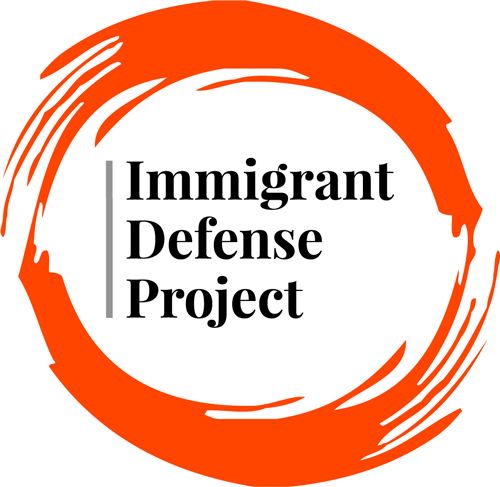To oppose deportation provisions and amendments in the Senate Immigration Bill (S. 744) targeting those alleged to be gang members, please:
1. Sign your organization (no individuals) to the letter here.
Sign-ons DUE by TOMORROW, May 15, 5 p.m. Eastern.
2. Call your senators Wednesday, May 15th and Thursday, May 16th (see action alert below):
ACTION ALERT:
(1) Ask the Senate Judiciary Committee to OPPOSE Grassley Amendment #43 which seeks to replace Section 3701 of S. 744’s gang deportation and ineligibility provisions for suspected gang members. This amendment will further increase racial profiling, increase targeting of youth of color and lead to the separation of families.
(2) Ask the Senate Judiciary Committee to ELIMINATE the new grounds of deportation and ineligibility (Sec. 3701) for suspected gang members.
What does Grassley #43 amendment do?
This amendment replaces and worsens the Senate bill’s 744 provisions regarding gang membership disqualification bars to legalization and deportation for those with lawful status by creating a new broad definition of criminal street gang and substantially increasing the burden of proof on a person to prove he did not know or reasonably should have known about the gang. A person would be permanently blocked from legal status and/or deported if the person falls within this new amendment. This amendment will target people who never committed any crimes whatsoever and who have obeyed all of our laws. The Los Angeles Times editorial board recently criticized the far–reaching provisions of this amendment.
Section 3701 of Senate bill S. 744 also contains new egregious deportation and disqualification bars for suspected gang members. Even though there is no sponsor for an amendment to eliminate Section 3701 of the Senate Bill, we ask that you call for the elimination of these existing provisions.
Background information is below.
What you need to do THIS WEEK, May 14-May 16:
The SJC needs to hear from you about the impact that Grassley Amendment #43 will have on our youth and families. Please focus your call on members of the Senate Judiciary Committee who are in bold. Below is a sample script. Staff will be reporting on the number of calls for and against each amendment to the Senators, so it is important to start calling TODAY, and increase call-in efforts on Thursday, May 16th.
Sample Script: “I am calling to ask Senator _ [name of Senator]_ to oppose Grassley Amendment #43 that relates to suspected gang membership. This amendment would punish mere “membership,” and is nothing more than guilt by association. There is no way to challenge the evidence being used to prove membership and it unfairly places the burden on the noncitizen to prove that he should not have known that the organization was a gang. This will lead to racial profiling, the increased targeting of youth and further separation of families.
Also, I object to Sec. 3701 gang removability grounds and the legalization ineligibility provisions in S. 744 because they are overbroad. We request that members of the Senate Judiciary Committee reconsider these new gang removability provisions and seek to eliminate it.”
Senator Leahy: 202-224-4242
Senator Feinstein: 202-224-3841
Senator Whitehouse: 202-224-2921
Senator Klobuchar: 202-224-3244
Senator Durbin: 202-224-2152
Senator Schumer: 202-224-6542
Senator Franken: 202-224-5641
Senator Blumenthal: 202-224-2823
Senator Coons: 202-224-5042
Senator Hirono: 202-224-6361
Senator Lee: 202-224-5444
Senator Hatch: 202-224-5251
Senator Cornyn: 202-224-2934
Senator Flake: 202-224-4521
Senator Sessions: 202-224-4124
Senator Graham: (202) 224-5972
Senator Cruz: (202) 224-5922
Senator Grassley: 202-224-3744
BACKGROUND: What is wrong with having new gang deportability grounds?
It would be disastrous for youth, particularly for youth of color and those who live in communities with a high concentration of gangs.
This kind of dragnet approach targets the wrong people and risks deporting and separating from their families individuals who are not gang members. Young people living in “bad” neighborhoods will certainly be vulnerable. Moreover, these provisions do not adequately protect people who have left gangs and have stable and productive lives.
These proposals impose guilt by association and collective punishment by targeting people not for their own individual culpable conduct, but for their associations with groups considered to be dangerous. For example, this provision could impact a person who resides with or associates with a family member known to be in a gang or lives in a neighborhood where there is a high concentration of gangs.
These proposals will likely exacerbate racial profiling and bad police practices because the Department of Homeland Security will likely rely on heavily criticized gang databases or gang injunctions to assess membership or gang activity. Often, these law enforcement tools label a person as a “gang member” for living in a neighborhood where there is a high concentration of gangs or living with a family member who is a gang member.
These proposals make it very difficult to challenge and correct mistakes of misidentification. Gang databases face mounting criticism for their use of inconsistent definitions, improper documentation procedures and inadequate review. A person can be in a gang database without ever knowing about it, and most gang databases do not have accessible mechanisms for individuals to be removed from the database.
These proposals diminish public safety in communities that experience gang violence. Individuals will be less likely to report crimes and gang violence in their communities because they will fear that any interaction with law enforcement will lead to deportation.
